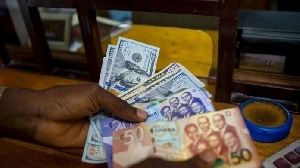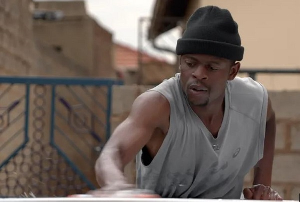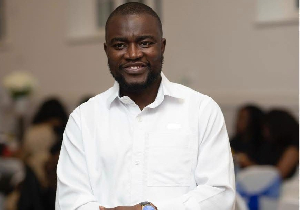The Economic Community of West African States (ECOWAS) has hinted at a possible return of the Malian government to civilian rule in a matter of days amid threats to impose restrictions if push comes to shove.
President Akufo-Addo, who doubles as the Chairman of the bloc, after Tuesday’s meeting explained that talks with the head of Mali’s new military junta, Col Assimi Goita was progressive.
But speaking on the Happy Morning Show (HMS) with Samuel Eshun, a Ghanaian lecturer based in Mali Steve Nuku Tawiah said, “The people in Mali want a good government and nothing more. Malians don’t want the military to hand over power to a civilian government. They believe another coup will happen with a civilian government in power, so the people want the Military to take their time to do a proper transition.”
He, however, revealed that the democratically elected president who was arrested on the back of the last Tuesday coup has been released. “The President was released after an intervention from ECOWAS. He is now out of the country but he didn’t go to France.”
This is not the first time, however, in 2012, a group of soldiers, declared the government of Amadou Toumani Touré overthrown, forcing him into hiding. The coup was followed by “unanimous” international condemnation, which saw harsh sanctions by Mali’s neighbours,
A colonel in Mali’s army says he’s now in charge of the West African country, declaring himself chairman of the junta that forced the democratically elected but unpopular president to resign. Col. Assimi Goita, one of the five mutinous military officers who announced this week’s coup on the state broadcaster ORTM, declared himself chairman of the junta now in power.
“By making this intervention, we have put Mali first,” Goita said in a broadcast that showed him meeting with the top officials of government ministries and urging them to resume work on Thursday. “Mali is in a sociopolitical and security crisis,” he said. “There is no more room for mistakes.”
Widespread condemnation
The day before, African and Western leaders had condemned the junta that forced Mali’s president from power, warning the coup was a deep setback for the West African nation that could threaten the battle against Islamic extremism.
Soldiers calling themselves the National Committee for the Salvation of the People promised that they would ultimately hand power to a transitional civilian government but gave no timeline. Junta members urged Malians to return to business as usual.
International condemnation
Condemnation of the coup was strong and swift from many quarters, reflecting international concern about instability in Mali and West Africa more broadly amid increasing attacks by Islamic extremists and the ensuing economic fallout, which has been among the drivers of illegal migration to Europe.
The African Union suspended Mali from the bloc, and the West African bloc ECOWAS said it would stop all economic, trade and financial flows and transactions between member-states and Mali.
Former colonizer France, which has worked to stabilise the country since leading a 2013 military operation to oust extremists from power in the north, called for an immediate return to civilian rule.
Paris, which has more than 5,000 troops stationed across the Sahel region including in Mali, also joined the condemnation with Foreign Minister Jean-Yves Le Drian saying in a statement that France “strongly reaffirms its full attachment to Malian sovereignty and democracy.”
A colonel in Mali’s army says he’s now in charge of the West African country, declaring himself chairman of the junta that forced the democratically elected but unpopular president to resign. Col. Assimi Goita, one of the five mutinous military officers who announced this week’s coup on the state broadcaster ORTM, declared himself chairman of the junta now in power.
“By making this intervention, we have put Mali first,” Goita said in a broadcast that showed him meeting with the top officials of government ministries and urging them to resume work Thursday. “Mali is in a sociopolitical and security crisis,” he said. “There is no more room for mistakes.”
The United States urged dialogue.“The US opposes all unconstitutional changes of government whether in the streets or by security forces,” tweeted J. Peter Pham, the State Department’s special envoy for the Sahel region.
“The priority is to not lose the fight against terrorism,” said a French official who spoke on condition of anonymity because he was not authorized to be publicly named according to official policy.U.N. Secretary-General Antonio Guterres and the Security Council called for the immediate release of Keita, the prime minister and others.
The U.N. is spending $1.2 billion a year on a more than 15,000-strong peacekeeping mission in the country, and the body’s peacekeeping chief Jean Pierre Lacroix told a closed Security Council meeting Wednesday that the force “remains committed to playing its mandated role … but the country must swiftly regain a measure of institutional stability and Constitutional order.”
Tuesday’s developments “represent an enormous setback” after seven years of investment by international partners to address Mali’s insecurity and political challenges, said Judd Devermont, the director of the Africa Program at the Center for Strategic and International Studies.
The country “is going to be paralyzed by the political jockeying over the future, and our ability to work with the government and security services is going to be undercut and restrained,” he said. “This intermediary period is really dangerous for the region’s security.”
The EU’s top diplomat Josep Borrell said the bloc “strongly condemns” the events unfolding in Mali and “rejects any anti-constitutional change”.
“This can in no way be a response to the deep socio-political crisis that has been hitting Mali for several months,” he added.
The day before
A day earlier, armed soldiers fired into the air outside President Ibrahim Boubacar Keita’s home and took him into their custody. A distressed Keita announced his resignation on television.
Speaking on national broadcaster ORTM just before midnight, a distressed Keita, wearing a mask amid the COVID-19 pandemic, said his resignation — three years before his final term was due to end — was effective immediately. A banner across the bottom of the television screen referred to him as the “outgoing president.”
“I wish no blood to be shed to keep me in power,” Keita said. “I have decided to step down from office.”
He also announced that his government and the National Assembly would be dissolved, certain to further the country’s turmoil amid an eight-year Islamic insurgency and the growing coronavirus pandemic.
The soldiers said on Wednesday that “social and political tension has undermined the proper functioning of the country for quite a while”.
In a statement carried overnight on state broadcaster ORTM, the mutinous soldiers identified themselves as the National Committee for the Salvation of the People led by Colonel-Major Ismael Wagué.
Wagué added: “Real democracy doesn’t go with complacency, nor weakness of the state authority which must guarantee freedom and security of the people.”
The news of Keita’s departure was met with jubilation by anti-government demonstrators.
“All the Malian people are tired — we have had enough,” one demonstrator said.
The detention was a dramatic change of fortune for Keita, who seven years earlier emerged from a field of more than two dozen candidates to win Mali’s first democratic post-coup election in a landslide with more than 77% of the vote.
General News of Wednesday, 16 September 2020
Source: happyghana.com













